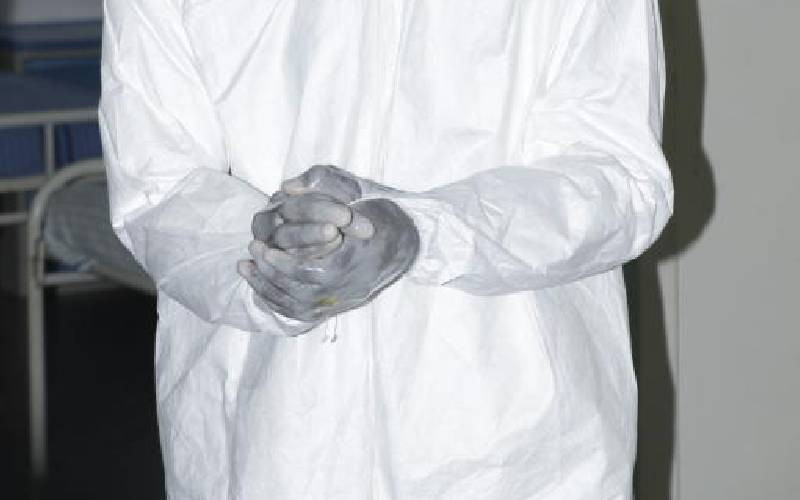Question: How does a respiratory virus find itself in vital body organs?
Although respiratory viral infections target organs like lungs, they tend to be disseminated through the blood streams to other organs as well and they affect them, causing inflammation. They can also be swallowed or ingested so they can also have an effect on the gastrointestinal tract.
Take the kidneys for example, how do these viruses end up damaging the organs?
It is because of an immune response by the body against the respiratory pathogens and that can produce a lot of antibodies. When there is an abnormal antibody production, there are pathological effects on organs such as kidneys, which are very sensitive to antibody-based disease. It is not a surprise for Influenza A to have an effect not limited to the lungs.
Is there a difference in how SARS-CoV-2 causes organ damage compared to other viruses?
What we have observed with Covid-19 is that most people are asymptomatic. But the few people who get severe illness will have very severe lung disease, just like in Influenza A, only with some subtle difference in the actual features we see in the lungs especially if we get a specimen. The difference is that those people susceptible to severe Covid-19 disease have additional underlying conditions. Generally, the systemic effect of Covid-19 is so similar to other viruses. I would however say that Influenza A is worse.
Why?
Whenever it (Influenza A) occurs, the reaction we see in the lungs is a lot more severe. We see a lot of cellular reaction to the viral infection in the airwaves as a result of severe immune response, causing diffuse alveolar damage. Alveoli are the organs that aid in gaseous exchange in the lungs. We also see viral pneumonia. With Covid-19 the degree of viral pneumonia is not so much. What we tend to see is diffuse alveolar damage and that is more on people with severe disease. For some reason, diabetics tend to be more susceptible.
How widespread is Influenza A virus in the body compared to SARS-CoV-2?
Influenza A viral particles can be identified in almost every organ, including bone marrow, joints, skin, and gastrointestinal tract. I have not seen the same description for Covid-19. It is mainly the lungs and some viral particles in the kidney, gastrointestinal tract and sometimes, the liver, where there is also some bit of inflammation.
One reason Covid-19 has been found to be severe are the blood clots. How does someone end up having blood clots from such a viral infection?
These blood clots are not unique to Covid-19. We see blood clots formed in the deep vein in the legs or abdomen in many of those people admitted for other reasons, so we do not have a good comparison group and we cannot properly say that Covid-19 is behind these clots. But they are still taken seriously because any patient with severe Covid-19 will undergo testing to see if there is clot and receive medication.
What of a case of someone who already had blood clots before getting Covid-19? Will this worsen the disease?
I would not say there is sufficient evidence to that, but such a person may have an increased risk on their end. This is because a lot of those clots, especially the ones in the veins, will develop when someone is not moving around, for example, if one is admitted and just in bed. May be this is the reason why clots are not very specific to Covid-19. There are other causes of clots like cholesterol and arterial disease and that is why these patients may have stroke as well.
Is there a difference on how a Covid-19 patient with severe organ damage is managed compared to other illness with the same outcome?
Stay informed. Subscribe to our newsletter
The main principle of managing Covid-19 is supportive care. If the lung is not working well, you provide additional respiratory support in the same way dialysis is provided for kidney. There is still no drug for Covid-19. In fact, when most viral infections are severe, there are no drugs that treat them. Influenza may have some, but they do not work that well.
Is the recovery rate the same when one has organ damage as a result of Covid-19 compared to other illnesses?
Severe diseases tend to affect people with underlying disease, which may worsen their condition. In cases of severe lung disease, there can be scarring and one will be left with residual lung disease. There is group of patients who will recover but they will always be tired. They will not go back to their normal life and lot of their symptoms are what we describe as constitutional like fatigue and malaise, which are neither here nor there. There are people who have been declared Covid-19 free but they are still feeling sick. What we do not know is who gets these residual illnesses and who does not.
How would you describe ‘happy hypoxia’ where some patients are too sick yet still walking with dangerously low oxygen levels?
Diffuse alveolar damage in Covid-19 is less severe (as compared to Influenza), and with this, there is not much inflammation hence there is still gaseous exchange in the alveoli though through slime (thick liquid leaking from blood vessels as a result of immune response). Carbon dioxide does not therefore build up so much in the body. If this happens, your brain will be informed to have you breath even harder. So people with happy hypoxia might not be as breathless, but if you check their oxygen levels, they are low.
For influenza, the carbon dioxide is blocked from leaving the body so these people are extremely breathless.
Why does the brain not alert you that you have low oxygen levels just like with carbon dioxide build up?
Even when oxygen is low, and carbon dioxide does not build up as fast, and there is good circulation to the brain, the brain cells tend to still survive, compared to the same situation with poor circulation of blood which causes ischemia (inadequate blood supply to an organ, in this case brain). It is the same with mountain climbers who as long as they have good breathing and circulation, they will not get altitude sickness. But if the breathing slows down and carbon dioxide builds up, one can have brain damage.
How is difficulty breathing caused by asthma different from Covid-19?
Asthma blocks the small channels that get air into the lungs due to allergic response. For Covid-19, the airwaves are not affected, but the alveoli where gaseous exchange takes place are. One of the things that makes Influenza A challenging is that sometimes, inflammation extends along the airwaves and they also get blocked.
 The Standard Group Plc is a
multi-media organization with investments in media platforms spanning newspaper
print operations, television, radio broadcasting, digital and online services. The
Standard Group is recognized as a leading multi-media house in Kenya with a key
influence in matters of national and international interest.
The Standard Group Plc is a
multi-media organization with investments in media platforms spanning newspaper
print operations, television, radio broadcasting, digital and online services. The
Standard Group is recognized as a leading multi-media house in Kenya with a key
influence in matters of national and international interest.
 The Standard Group Plc is a
multi-media organization with investments in media platforms spanning newspaper
print operations, television, radio broadcasting, digital and online services. The
Standard Group is recognized as a leading multi-media house in Kenya with a key
influence in matters of national and international interest.
The Standard Group Plc is a
multi-media organization with investments in media platforms spanning newspaper
print operations, television, radio broadcasting, digital and online services. The
Standard Group is recognized as a leading multi-media house in Kenya with a key
influence in matters of national and international interest.








